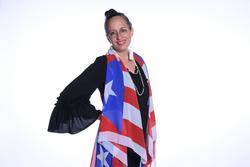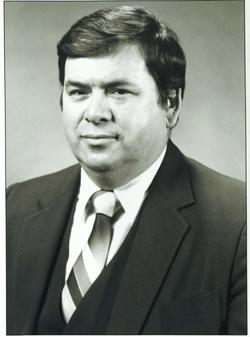The speaker for the 2021 Orlando and Rose Costas Lecture (originally scheduled for March, 2020) will be the Rev. Dr. Jeanette Zaragoza- De Leon, with the lecture title: “Abolition and Interpreting: A Latinx Theological Perspective on the Amistad Trial.”
This presentation uncovers the unexplored interpreting and translation matters in the Amistad Case and their intersection with issues of oppression, race, colonialism and internalized oppression. While a transnational and transatlantic historical backdrop characterizes this story, important aspects of this story centered in Yale College and New Haven. This presentation further looks at the Amistad lessons in terms of challenges tackled with valor and missed opportunities by abolitionists. Accompanied by musical rhythms of Bomba puertorriqueña (Puerto Rican Bomba rhythms), the presentation will look at the Puerto Rican “Verano del 2019” when united Puerto Ricans forced the governor Roselló, Jr. then to resign in 10 days.
Musical Guests - UPDATE: Unfortunately, due to programming constraints, we will be postponing this special opportunity, but we will be inviting Movimiento Cultural Afro-Continental (MCAC) to an in-person event in the future! Stay tuned!
About the Lecturer
 |
Jeanette Zaragoza De León is a Puerto Rican ordained minister of the United Church of Christ, holding Ministerial Authorization in the New York Conference. She earned a bachelor’s degree from Lesley College in early childhood education and obtained an M. Div. from Pacific School of Religion, which included studies at the Seminario Bíblico Latinoamericano in San José, Costa Rica, the Seminario Evangélico de Puerto Rico, and the University of Jerusalem. In December 2011, she graduated from the University of Puerto Rico with an M. A. in Translation. Her graduation thesis title was, “From this Side of the Horizon: Feminist Biblical Hermeneutics,” (a translation of “Capítulo 16: Análisis feminista,” in Para que comprendiesen las Escrituras: Introducción a los Métodos Exegéticos, by Ediberto López-Rodríguez-Rodríguez, New Testament Scholar at the Seminario Evangélico de Puerto Rico). In order to further her research and interdisciplinary research, in 2016, Jeanette completed all requirements for a Masters in Research in Translation and Interpretation Studies at the Universidad Jaime 1ero. On November 2018, she also earned a PhD from said university. Her doctoral thesis entitled “The Critical Translation and Interpreting Stories of the Amistad Case” explored the Amistad Case from the Interpreting and Translation historiographical perspectives. She applied a Critical Race Theory lens to her archival findings. Rev. Dr. Zaragoza is trained and certified as a professional court, medical and conference interpreter. Her ministerial calling involves designing multilingual-multi rhythmic worship experiences towards a decolonizing church that invites worshippers to honor, celebrate and be critical about their intersectional backgrounds. Rev. Dr. Zaragoza was a PhD Visiting Researcher at Yale Divinity School from 2017 to 2019. Both Dr. Tisa Wenger and Dr. Willie Jennings served as her mentors and dissertation advisors. As a Visiting Researcher, she completed her research towards the writing of her doctoral thesis. She has extensive international, ecumenical and interfaith experiences.
More about Orlando Costas (1942-1987)
 |
Through the sometimes-traumatic experience of immigration, Costas struggled to find a place where he felt that his intersecting identities could be affirmed and flourish. During this time, his sense of mission began to be shaped strongly by the stark contrast between his childhood in Puerto Rico and the reality of life as an immigrant in the racist and often hostile American society. This sense of differing realities fueled Costas’ call to serve and his work as a Christian, theologian, and mentor. His theological grounding focused on liberation of the poor, oppressed, hungry, and humiliated, and these were an emphasis of his work later in life as a minister, scholar, and the academic dean of Andover Newton Theological School.
